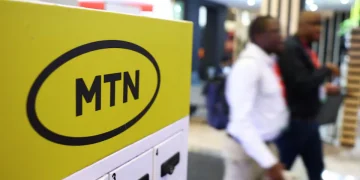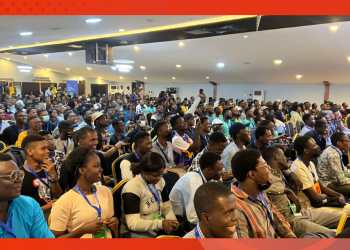Telecel Ghana has signed a US $70 million Memorandum of Understanding with Huawei to upgrade and expand its nationwide mobile network. The partnership, announced in early November 2025, will support the deployment of about 2,500 new sites to strengthen 4G capacity and improve service reliability across the country.
This marks one of Telecel’s largest infrastructure commitments since acquiring Vodafone Ghana in 2023, signalling a renewed push to reposition itself in a competitive market.
A Competitive Landscape Dominated By MTN
Telecel’s modernisation drive comes at a pivotal time for Ghana’s telecom industry. The operator currently holds 18–19 percent of the mobile market, according to analysis from Connecting Africa. MTN Ghana remains the overwhelming market leader with 78.88 percent share, as reported by Techpoint Africa.
This gap in customer base and network infrastructure shapes much of the competitive dynamic. Since taking over Vodafone Ghana, Telecel has been working to rebuild user confidence, improve service quality and reposition itself as a strong alternative in a market where network performance heavily influences customer decisions.
What The Telecel–Huawei Partnership Covers
The new agreement focuses on significant expansion and modernisation of Telecel Ghana’s mobile network. Huawei will support Telecel in deploying around 2,500 additional sites, most of which will enhance 4G coverage and improve overall service stability.
The rollout includes upgrades to transmission equipment, increased backhaul capacity and measures to reduce congestion in high-demand urban areas. It also aims to improve reliability across rural and semi-urban communities where network performance has historically lagged.
This collaboration expands on earlier work between the two companies. In 2024, Telecel (then operating under Vodafone Ghana) partnered with Huawei on targeted 4G improvements. The new MoU broadens the scope significantly.
What This Means For Consumers
For everyday users, the upgrade is expected to deliver more dependable 4G coverage, faster data speeds and fewer disruptions during peak hours. Rural communities could also benefit from better signal quality, helping close service gaps between major cities and underserved regions.
Improved connectivity strengthens a range of daily activities. Streaming becomes more reliable, mobile-money transactions are processed with fewer errors and remote work or learning becomes more feasible. For SMEs, consistent network performance enhances payment systems, customer engagement and cloud-based operations.
Why This Deal Matters For Telecel
The partnership is a strategic move for Telecel as it works to rebuild its footprint in Ghana’s telecom sector. With MTN holding a greater share of the market, strengthening network performance is essential for customer acquisition and retention. Reliable connectivity remains one of the strongest drivers of user behaviour in the country, particularly as data consumption rises.
The investment also positions Telecel for future network evolution. While this agreement focuses on 4G expansion, the upgraded infrastructure could support gradual shifts toward 5G should commercial or regulatory conditions allow it in the coming years.
Why It Matters For Ghana’s Digital Ecosystem
Ghana’s digital economy depends heavily on strong telecom infrastructure. Fintech adoption, streaming platforms, e-commerce, ride-hailing services, cloud tools and SME digitisation all rely on stable mobile networks. Large-scale upgrades like this support broader digital participation and economic activity.
The deal also shows how non-dominant operators can use strategic vendor partnerships to accelerate infrastructure improvements. For Ghana, a more competitive network landscape could raise overall service standards and give consumers more choice.
Takeaway
Telecel’s US $70 million partnership with Huawei is both a technical upgrade and a strategic repositioning. In a market where MTN controls a lot, expanding 4G capacity through a 2,500-site rollout gives Telecel a clearer path to improving user experience and competing more effectively.
For Ghana’s wider digital ecosystem, the initiative strengthens the country’s infrastructure foundation and signals growing urgency around connectivity. If Telecel executes the rollout effectively, customers across Ghana could see better performance, stronger rural coverage and a more competitive telecom environment over the next few years.
















